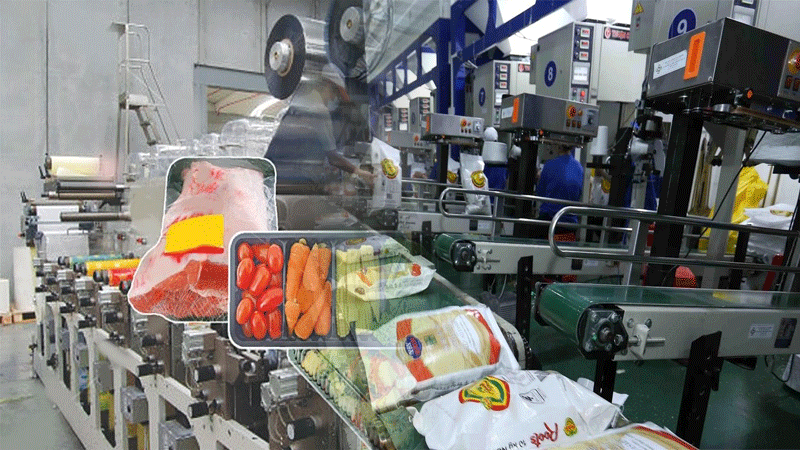Rising urbanization and increased awareness of the importance of nutritious food have increased the importance of the processed and packaged food industry in Pakistan.

Pakistan has great potential to boost its processed and packaged food industry by making the best use of its agricultural resources according to experts.
Rising urbanization, a growing working class, and increased awareness of the importance of nutritious food have increased the importance of the processed and packaged food industry in Pakistan.
Following the rise of e-commerce and online trade, there has been a significant increase in ready-to-cook South Asian foods, primarily in the Middle East and the United Kingdom, but Pakistan faces challenges in the manufacturing of grade packaged food in this sector.
Pakistan’s annual meat exports are limited to $500 million. The value addition of ready-to-cook and processed foodstuffs, on the other hand, has the potential to improve things in this sector.
Fawad Ahmed, sales manager at a Lahore-based meat export company, stated that Pakistan can increase exports through meat trade with China, which is one of the leading importers of meat.
He stated that Pakistan only needs to improve its quality and safety standards in order to export meat to China. He stated that foot and mouth disease (FMD) in cattle is the primary reason that Pakistan’s potential for meat exports has been limited.
“The World Organization for Animal Health (OIE) has barred countries from exporting products with FMD, but Pakistan can take advantage by establishing FMD-free zones and farms.” “Pakistan is blessed with the best livestock breeds in the world, but to enhance exports, it needs to raise these cattle as per international standards,” Fawad said.
Dr. Anwaar Ahmed, Director of the Institute of Food and Nutritional Sciences at PMAS-Arid Agriculture University in Rawalpindi, told WealthPK that Pakistan, as an agricultural country, has excellent prospects for expanding its food processing industry and increasing exports.
He stated that Pakistan is the fourth largest milk producing country in the world, but Pakistan’s share of valuable exports from pasteurized milk is very low. Only 4% of the milk produced in the country is pasteurised and UHT (ultra-high temperature) treated, he claims, and only 1% is used in value-added dairy products.
“Pakistan requires a vibrant food processing industry to increase farmer income through value-added products,” he said. According to Dr. Anwaar, the packaging facility improves the portability and shelf life of food products.
According to the findings of the Economic Survey of Pakistan, the agriculture sector accounts for 11.5% of Pakistan’s overall GDP, with livestock accounting for 60.5%.
It is estimated that 38% of the country’s population is involved in agriculture in various forms, and the overall estimated cost of the livestock sector in the country is Rs1.6 trillion, but the export share is very low. Dr. Anwaar believes Pakistan should look into new markets in order to increase its meat exports.
Jordan allowed three Pakistani slaughterhouses to export bovine, sheep, goat, and camel meat last year. Similarly, there is enormous potential for beef and mutton exports to Indonesia.
In Pakistan, it is estimated that 1.4 million animals are slaughtered prematurely each year. Plans have been introduced at the government level to promote and increase the country’s production of high-quality beef by saving 380,000 male calves and providing incentives to farmers to stop slaughtering calves.
According to available data, China is one of the world’s largest meat import markets. China’s annual beef and chicken import capacity is 10 million metric tons. Pakistan’s meat exports to China are extremely low due to insufficient safety standards. China is constructing a vaccine factory in Gwadar to immunize cattle against FMD.
Traditional dairy farming practices are used in Pakistan because most farmers in the country’s rural areas are illiterate and have limited access to cattle hospitals. Pakistan must improve cattle farming to international standards in order to increase meat and dairy product exports.